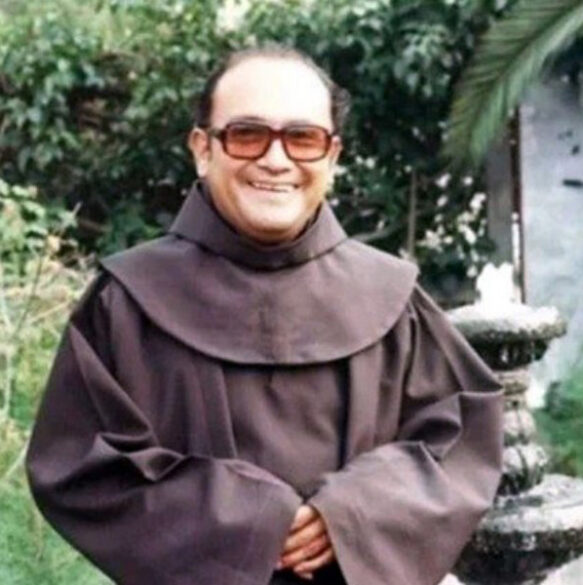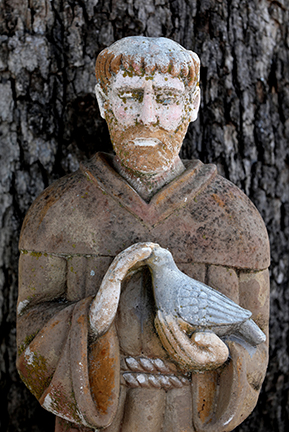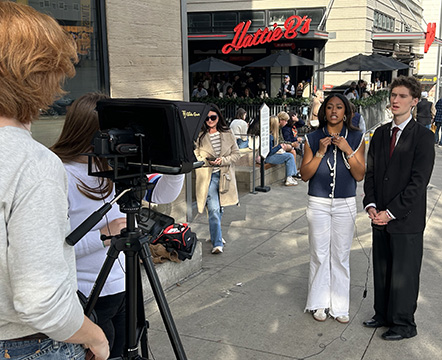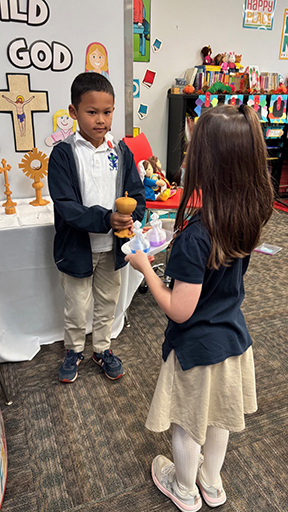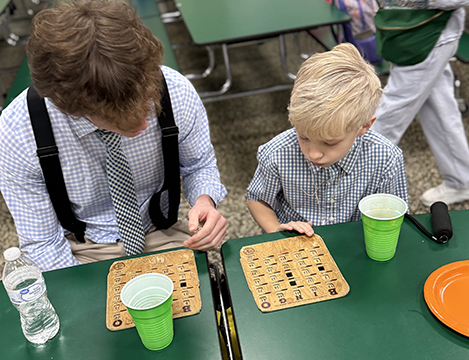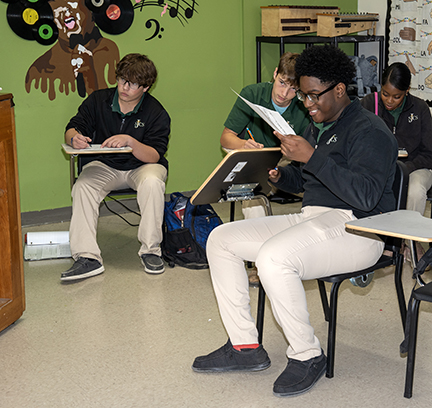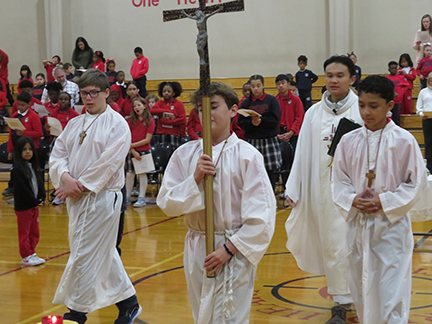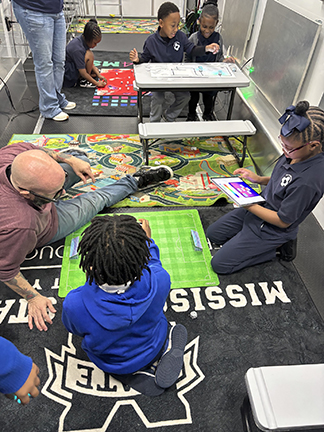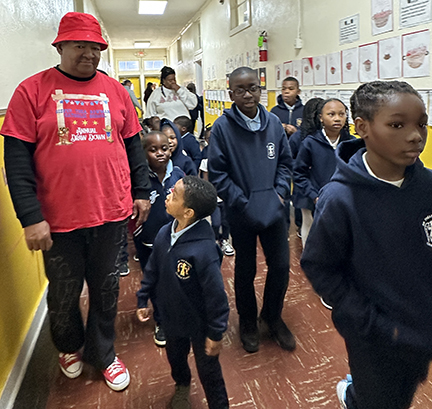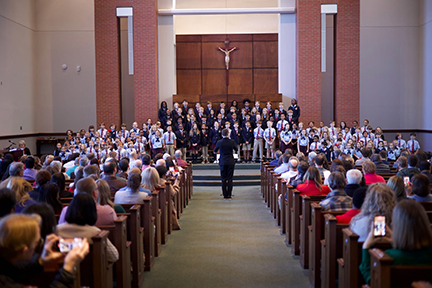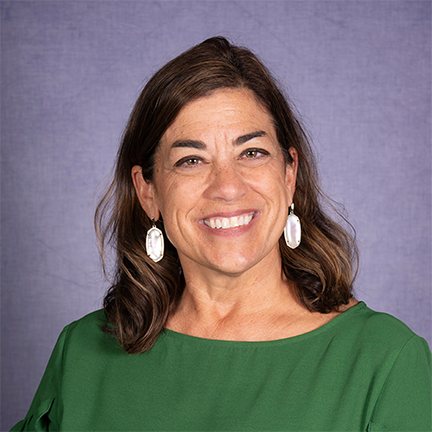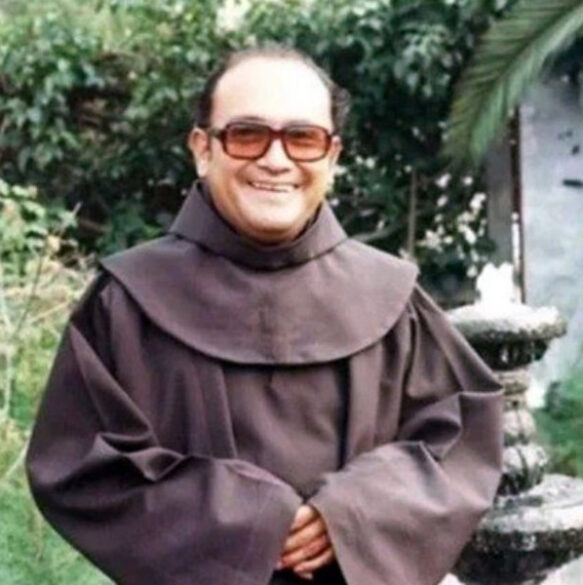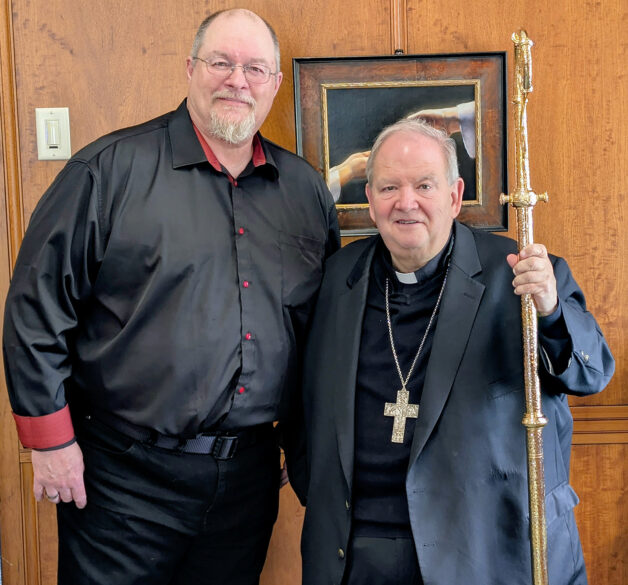Por Obispo Joseph R. Kopacz, D.D.
En enero de 2026, la Coordinación de Tierra Santa realizó su misión anual a la tierra santificada por la presencia encarnada del Señor hace casi dos mil años. Esta iniciativa, promovida por el Vaticano al comienzo del tercer milenio, busca profundizar la relación entre las comunidades cristianas de Palestina e Israel y las Conferencias Episcopales Católicas de Europa, las Islas Británicas, Canadá y los Estados Unidos. Sus pilares fundamentales son la peregrinación, la oración, la presencia y la presión o persuasión.
El tema de 2026 fue: Una tierra de promesa – encuentro y diálogo con pueblos de esperanza.
La peregrinación incluyó una visita a la Iglesia del Santo Sepulcro, donde celebramos la Eucaristía en la tumba del Señor durante dos días consecutivos. Fue allí donde amaneció por primera vez la Resurrección, cuando el Señor Jesús resucitado bendijo a hombres y mujeres con la esperanza y la paz que el mundo no puede dar y por las que Tierra Santa tiene hambre y sed. La Eucaristía fue el corazón de cada jornada y adquirió un significado especial al ser celebrada junto a comunidades de profundas raíces bíblicas.
Esta peregrinación no se centró en los sitios tradicionales de la vida, muerte y resurrección del Señor, sino en la experiencia de lo sagrado cada vez que el pueblo de Palestina y Jerusalén nos abrió su corazón y su hogar con una hospitalidad generosa y sincera.
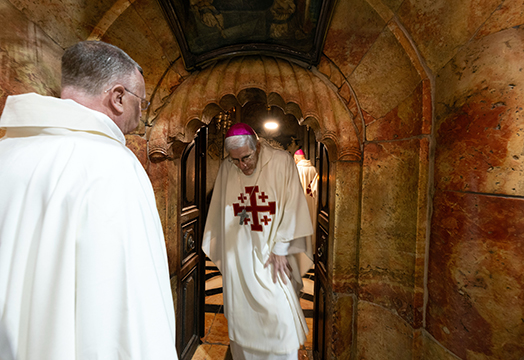
Junto con la peregrinación y la oración, otro pilar esencial de la Coordinación de Tierra Santa es la presencia. Cada encuentro con comunidades diversas y marginadas fue una oportunidad para escuchar sus relatos de sufrimiento cotidiano y, al mismo tiempo, ser testigos de su firme determinación de no renunciar a la esperanza de una vida con dignidad y paz. Nuestra presencia fue un abrazo de esperanza y una señal clara de que no han sido olvidados.
¿Quiénes son hoy los marginados en Palestina e Israel, cuyas voces apenas se escuchan en medio del estruendo de la guerra y la devastación en Gaza, desatada tras el atroz acto de terrorismo del 7 de octubre de 2023?
Al comenzar nuestro recorrido, nos reunimos con una comunidad beduina visible desde la carretera que conduce de Jerusalén a Jericó. Su modo de vida ancestral se ve amenazado a diario por la intimidación y la violencia de colonos judíos extremistas que buscan expulsarlos de sus tierras. Aunque estas tribus recurren a los canales legales para defender sus derechos, sus voces rara vez son escuchadas. El tiempo compartido en diálogo y en una comida tradicional fue una afirmación de su dignidad y un gran regalo para todos.
En Cisjordania, muchas comunidades palestinas viven bajo una presión constante para abandonar las tierras heredadas de sus antepasados. Visitamos Taybeh, una comunidad cristiana de aproximadamente 1,300 habitantes que lucha por su supervivencia. Tras celebrar la Misa dominical, escuchamos a los ancianos relatar cómo esta realidad ha provocado la migración forzada de casi el 90 % de sus familiares y vecinos. La destrucción de olivos, el robo de ganado y la confiscación de tierras han creado un clima permanente de miedo.
En el contexto actual, sus voces siguen siendo ignoradas. La experiencia de Taybeh refleja la alarmante disminución de la población cristiana en Tierra Santa. Quienes permanecen lo hacen con paciencia y perseverancia, sostenidos por la solidaridad de quienes emigraron y por su profundo amor a la tierra ancestral. La valentía y la esperanza se renuevan con visitas como la nuestra.
Al dejar Cisjordania, visitamos el Vicariato de Santiago del Patriarcado Latino, formado por cristianos católicos de habla hebrea en Israel. Esta pequeña minoría vive pacíficamente en barrios judíos de Jerusalén y trabaja incansablemente para transmitir la fe a las nuevas generaciones y servir a migrantes católicos que llegan al país.
Tuvimos el privilegio de una extensa visita con el cardenal Pierbattista Pizzaballa, Patriarca Latino de Jerusalén, quien compartió su profunda esperanza en el regreso de los peregrinos a los lugares santos, ya que la población local sufre gravemente en su ausencia.
Durante nuestra estancia, escuchamos por videoconferencia al padre Gabriel Romanelli, párroco de la parroquia Sagrada Familia en Gaza. Compartió la devastación cotidiana causada por la guerra y la urgente necesidad de alimentos, medicinas y agua. Cada día sin ayuda, afirmó, pone en riesgo la vida de los más vulnerables. Personas de buena voluntad esperan, contra toda esperanza, que el camino hacia la paz se consolide y que las armas sean finalmente silenciadas.
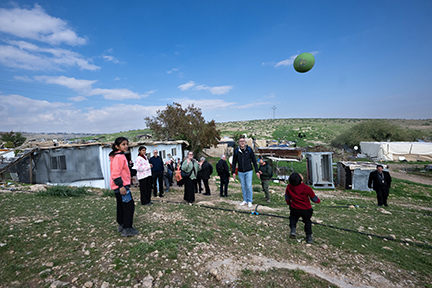
Otro aspecto fundamental de la peregrinación fueron los encuentros con quienes trabajan por la reconciliación, la justicia y la paz. En un contexto donde los pacificadores suelen ser desacreditados, el testimonio del Centro Rossing para la Educación y el Diálogo, de Rabinos por los Derechos Humanos y del Foro Círculo de Padres – integrado por palestinos e israelíes que han perdido hijos a causa de la violencia – fue una luz de esperanza. Contra toda expectativa, perseveran en la formación de jóvenes y en la construcción de un futuro más humano.
La peregrinación concluyó en Belén, donde la población cristiana ha disminuido drásticamente. Visitamos una escuela para personas sordas, la Fundación San Juan Pablo II y el seminario del Patriarcado Latino, recientemente reabierto. En estos espacios educativos, la esperanza se refleja en los rostros de niños, jóvenes y futuros sacerdotes, sostenidos en gran parte por la generosidad de cristianos de otras regiones.
Para concluir, cada noche los obispos y colaboradores nos reuníamos para la reflexión, el diálogo y la oración. De ese discernimiento nació una declaración conjunta que será difundida por nuestras Conferencias Episcopales y diócesis, poniendo en práctica el cuarto pilar de la Coordinación de Tierra Santa: la presión y la persuasión.
Que las semillas sembradas por esta peregrinación solidaria en una tierra profundamente herida den fruto abundante de justicia y de paz.

